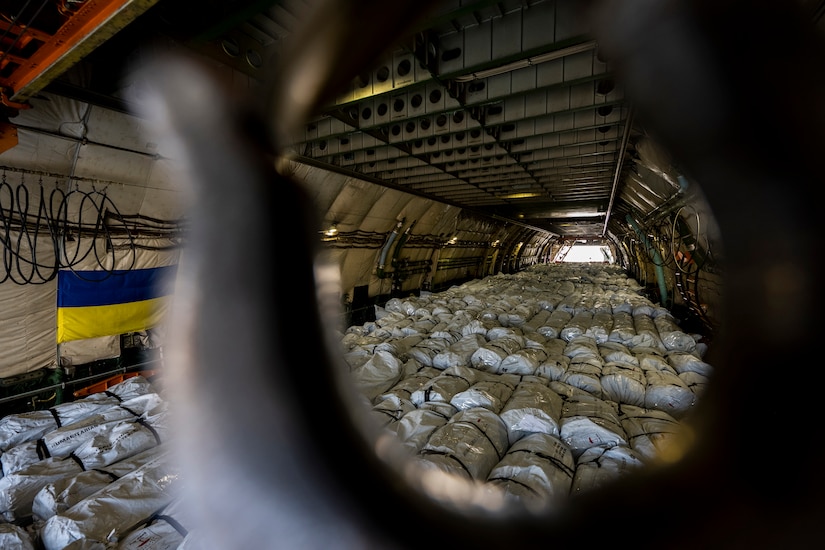The U.S.-led Ukraine Defense Contact Group is undertaking two new initiatives aimed at bolstering Ukraine’s armor and drone capabilities, a senior Pentagon official announced today.
The formation of the two new capability coalitions builds upon ongoing efforts by the coalition of close to 50 partner nations to build a future Ukrainian force capable of deterring Russian aggression for the long term.
In a briefing to reporters following the 18th meeting of the UDCG, Assistant Secretary of Defense for International Security Affairs Celeste Wallander announced that Germany and Latvia will lead the newly formed armor and drone capability coalitions collectively.
“These important coalitions will build on the extensive work that we’ve already been doing in the contact group,” Wallander said. “They will sustain and deepen security assistance in the years ahead, working closely with Ukraine to create a formidable combat force that can defend against and deter future threats from Moscow.”
The partner nations unveiled the model of forming several distinct coalitions focused on specific capabilities following the 16th meeting of the UDCG meeting held in October.
The armor and drone capability coalitions announced today, add to the previously announced capability coalitions focused on Ukraine’s air force, artillery, maritime security, ground-based air defense, demining and information technology capabilities.
The U.S. and France are partnered in leading the effort to bolster Ukraine’s artillery capability. The U.S. is also co-leading the air force capability coalition alongside Denmark and France and is an active participant in the air defense capability coalition led by Germany and France, among others.
Wallander underscored the continued commitment among the group of allies to help Ukraine push back against Russian aggression.
“Ukrainians are not asking us to fight for them,” she said. “They are asking only for the tools to defend their country. So, in 2024, we must continue to give them what they need to fight for their freedom. And our allies and partners have shown impressive determination and drive.”
Wallander noted that the group of countries comprising the UDCG have committed more than $80 billion in security assistance to Ukraine since Russia’s full-scale invasion in February 2022.
“That is a testament to our unity and commitment,” she said. “And today we continue to hear from that coalition on additional immediate support to help Ukraine’s armed forces on the battlefield.”
Secretary of Defense Lloyd J. Austin III underscored the United States determination to work alongside allies in support of Ukraine as he convened the virtual meeting of the UDCG earlier today.
Austin praised the continued support among Ukraine’s allies and implored the international community not to drop its guard as this war enters its third year.
“Let’s be clear: Our support for Ukraine’s struggle makes all of our countries more secure,” Austin said as he kicked off the virtual meeting from Washington. “If we lose our nerve, if we flinch, if we fail to deter other would-be aggressors, we will only invite even more bloodshed and more chaos.
“A sovereign and secure Ukraine is critical to global security,” he said. “And we must not waver in our support for Ukraine.”
In December, the U.S. announced its 54th drawdown security assistance package for Ukraine valued at up to $250 million, including air defense capabilities, artillery and anti-tank weapons and other equipment.
The announcement came amid negotiations on Capitol Hill over President Joe Biden’s supplemental request to Congress to continue critical funding for military and humanitarian aid for Ukraine.
As those negotiations continue, the U.S-led coalition of nearly 50 countries comprising the Ukraine Defense Contact Group remain committed to meeting Ukraine’s immediate battlefield needs and supporting its long term security.
Austin commended recent announcements by Estonia, Germany, Lithuania, the Netherlands, Norway, Sweden and the United Kingdom to send packages totaling billions of dollars in military assistance to Ukraine since the last meeting of the contact group.
But he warned that as fighting continues throughout the winter, Russia will seek to demoralize Ukraine’s defenders who remain steadfast in their fight for their sovereignty.
“Putin continues to sacrifice staggering numbers of Russian troops in his rash and reckless war of choice,” Austin said. “And Putin hopes that missiles and drones will demoralize the Ukrainian people and break the fighting spirit of Ukrainian military.
“So, I urge this group to dig deep to provide Ukraine with more lifesaving ground-based air defense systems and interceptors.”









